The Silence of the Girls is the first book in what will eventually be the Women of Troy Trilogy. The second book in the series, The Women of Troy, was published in 2021, and the trilogy is due to be completed next year (2024) with the publication of The Voyage Home.
The Silence of the Girls primarily retells the events of The Iliad from the point of view of Briseis, with the exception that the beginning of the novel and its end extend Briseis’ narrative beyond the limits of the original But as the last sentence of the novel suggests, despite its feminist agenda, The Silence of the Girls is not primarily Briseis’s story, but Achilles’s. As a slave of war, Briseis has little agency in the novel:
Looking back, it seemed to me I’d been trying to escape not just from the camp, but from Achilles’s story; and I’d failed. Because, make no mistake, this was his story - his anger, his grief, his story. I was angry, I was grieving, but somehow that didn’t matter. [266]
Stories, songs, music: these are common motifs in The Silence of the Girls, but it is Achilles who is most associated with them. Achilles frequently plays the lyre, or he writes a song with Patroclus, or he sings songs of death and glory. Songs, music and stories are associated with the masculine world of action and glory. Born to a goddess, Achilles is achingly aware of his own mortality and the shortness of his life which he will exchange for the eternal glory of song. Briseis, on the other hand, was once a queen, but is now a slave: she wants her old life back but cannot have it; she loathes Achilles who has killed her family, but as his prize, must sleep with him; and she desires freedom but understands that by attaining it she may bring herself undone entirely. Briseis represents the fate of women in war. Yet compared to other women in this story, she is somewhat fortunate. Achilles may be cold and show her little regard, but he otherwise treats her well enough, and Patroclus, his closest friend, shows her a level of empathy and understanding that surprises Briseis.
To begin with, Briseis is the wife of Mynes, King of Lyrnessus. She is taken prisoner along with other women when her city is sacked by the Greeks, while her family – her brothers and husband – are killed along with most of Lyrnesses’s population. Men, young boys and even pregnant women, because they may be carrying a male child, are slaughtered, while the female population is raped and made prizes for the Greek fighters. It is the lot of women whose cities fall to hostile forces to suffer this degradation, unless they do as Arianna does, and toss themselves from a high building. Briseis watches her cousin fall “like a singed moth” from a parapet.
The romantic notion that Troy is a campaign launched by the treachery and beauty of Helen – to return her to Menelaus after Paris, a Trojan prince and son of Priam, King of Troy, absconded with her – is a somewhat simplistic understanding of a history we can only glimpse and speculate about now, especially given that its main sources, apart from archaeology, remain poetic epics. It’s the sort of story, Briseis imagines, which would be told to hide the harsh realities. Troy was one city among many along the coast of Asia Minor that Greek forces may have targeted. The fall of Lyrnessus is a part of that story, which is how Briseis becomes Achilles’s prize of war, and then the object of dispute between Achilles and Agamemnon. When Agamemnon is forced by circumstance to return his own prize girl, Chryseis, to her father, a priest of Apollo, he angrily demands Achilles’ prize, Briseis, in compensation. Angered by this slight to his status, Achilles famously refuses to fight until honour is restored.
Briseis’s voice in Pat Barker’s hands is an interesting mix that expresses the bitterness at the lot of women in what is essentially a story of men, as well as being a pragmatic voice that accepts the realities of her situation in order to forge a story for herself. Unwilling at first to let go of her sense of identity as queen of Lyrnessus, Briseis eventually accepts the reality that she must work within the parameters of her new life. We see this several times throughout the novel. When Briseis successfully stows herself in Priam’s wagon so that she might escape to Troy, she soon makes the calculation that Troy will soon fall and she will be re-enslaved: except her circumstances might then be even worse. Her decision to return to Achilles is an expression of her pragmatism, as is her thought when she realises her sister, Ianthe, may have thrown herself from the battlement of Troy rather than be taken, that that kind of action “was not me.” Briseis has already tried to drown herself, and she understands her own overpowering desire to survive.
For those familiar with The Iliad, the story will seem very familiar, albeit from a different perspective and emphasis. The deaths of Hector and Achilles, for example, happen “off-stage”, so to speak. We hear about them but do not witness them directly. The story of the battles, so graphic and detailed in The Iliad, are beyond the scope Briseis’s experience. She sees the wounded and dying in the camp hospital, she witnesses the clash of frail egos and experiences the dreaded threat of the war, but her experience is necessarily marginal to the story told by Homer.
Instead, Briseis is worried about her relationship with Achilles. Upon that thread hangs her fate. Or she worries what the quarrel between Achilles and Agamemnon will mean to the perception held of her by the men of the army: is it making her vulnerable? And she struggles to internalise her own grief while at the same time she must attempt to understand the outsized grief of Achilles. So many more pages are dedicated to Achilles grief at the loss of Patroclus than to Briseis’s own grief for the murder of her family by Achilles, himself. Because, remember, this is Achilles’s story. Briseis can only act within the parameters of Achilles world. So, it is Achilles’s relationship with his mother, the goddess Thetis, rather than Briseis’ own experiences growing up, that holds our attention. We certainly see Briseis on the walls of Troy with Helen and Priam when she is only twelve, but these scenes mostly establish Priam’s grandfatherly relationship with her. In comparison, Achilles’s loss of his mother at an early age – as a goddess she leaves rather than dies – and the terrible grief of this loss, even as a grown man, is disproportionate. The comfort Achilles takes in his friendship with Patroclus as a child, along with the associations he makes between Briseis and his mother, would be worthy of a psychoanalytic reading. His desire to find a maternal bond with Briseis seems awkward, and Barker uses the situation to great effect to portray Achilles as psychologically damaged; no more than a child in need. There are two Achilles, in effect: the man who is the greatest fighter the Greeks have; and the child who is haunted by the sense of unhappiness and revulsion he once sensed in his mother. However, Barker isn’t excusing Achilles or justifying his violence or the violent world that has created him. But if we are to understand Briseis’s emerging story – why she stays with Achilles and grows closer to him – then we must also understand the man: understand his need; that while women are victims of war and their socio-historical moment, so too are men, even if we don’t admire them as the ancients would have us do, or buy into their systems of honour. Barker offers the complexity of Achilles’s inner world as adjunct to the simplicity of his masculine persona.
I think this is an important aspect of the novel. Feminist retellings of history and famous texts like The Iliad have become more common, and they serve a purpose, if nothing else, to remind us that there is a broad scope of human experience absent from much of history and literature. So, alongside Briseis’s first person narrative we also receive a third person account of moments unknown to Briseis, to further immerse us in Achilles’s story.
But Barker does more than just give us an effective, empathetic retelling of a familiar story of men and war, but elevates the status of the story of women, too. Women, in the novel, as the title suggests, primarily remain silent. They are powerless. To speak or act would be foolhardy and dangerous. Women remain weavers – presumably of clothes or funeral shrouds – cooks and nurses; essentially as adjuncts, it would seem, to the main action of the war. But Barker’s narrative draws an equivalence between the experience of men and women in war. By telling Achilles’s story Barker is drawing a parallel with Briseis’s. When Briseis tells us of Achilles suffering we are reminded of her own. While the battles of men are the subject of song and glory, Briseis observes, “men are curiously blind to aggression in women. They’re the warriors, with their helmets and armour, their swords and spears, and they don’t seem to see our battles – or they prefer not to.” Women, Briseis states, are understood as “gentle creatures” by men to preserve their own peace of mind, but women in this novel are in a different kind of battle for survival. Because if women are not, like men, openly violent in the course of the book, their struggles are still evident. While men can train for war, women have little control. Their fate in war relies much upon their attractiveness and youth. They survive in the penumbra of the conflict by luck and goodwill, and if they are lucky now it only takes the boredom of a man to replace her and change her fate. Certainly, women remain silent when they serve, but their spirit – that “aggression” in women, is sometimes expressed, like the washer women who play with the limp penis of Myron, dead from the plague, and mock him: “The women hooted with laughter – and immediately clapped their hands over their mouths to silence themselves.”
The point is most easy to make with a scene between Priam and Briseis. Towards the end of The Iliad Priam infiltrates the Greek camp to see Achilles and ask for the body of his son, Hector, back. Achilles has shown contempt for Hector’s corpse by dragging it behind his chariot around the walls of Troy and then the grave of Patroclus. In his grief, Priam hangs upon Achilles’s knees and kisses his hand: “I do what no man before me has ever done, I kiss the hands of the man who killed my son.” Priam’s suffering is tragic because it is exceptional and unique. But compared to this is the suffering of women which is tragic because it is unexceptional and common: “I do what countless women before me have been forced to do. I spread my legs for the man who killed my husband and brothers.” This is a kind of endurance that lacks theatre and is a kind of suffering hard to inspire song. But Barker gives this suffering a dignity and equality to the story of the male protagonists of The Iliad.
The story of The Iliad is about heroic figures who loom so large they fight with gods or whose causes are supported by them. The scope of the story is beyond the realities suggested by the remains of Troy on the hill at Hissarlik in modern Turkey. These men are noble, brave and represent civilisations. They fight with principle and live by principles. But it takes a story like Barker’s to remind us what the probable reality of a situation like this would be: populations slaughtered and women forced to live in what Briseis calls “a rape camp.” It is a story that The Iliad elides.
So, too, when Achilles finally returns to the battle he goes on a killing spree. Barker has Briseis list the men he kills with a litany of wounds and deaths that recall the long lists used by Homer to raise the heroic stature of the battle. But Briseis’s point is: “How on earth can you feel any pity or concern confronted by this list of intolerably nameless names.” As an alternative, Briseis tells us brief stories about each dead man: how he was raised; his first steps or first words. It is an attempt to return each man’s humanity, at least a little bit.
In the same vein, Barker’s narrative attempts to humanise women who are brutalised by war. The narrative suggests there is also heroism in those forced to remain quiet and compliant. That their suffering has been endured unglorified alongside glorious deeds that are not so glorious. That’s why The Silence of the Girls is a retelling of The Iliad, and a story about Achilles, but is also a story about the bond, endurance and forbearance of women in war. In telling Achilles story, Briseis is preparing to tell her own.
The Women of Troy Trilogy

 RSS Feed
RSS Feed Facebook
Facebook Instagram
Instagram YouTube
YouTube Subscribe to our Newsletter
Subscribe to our Newsletter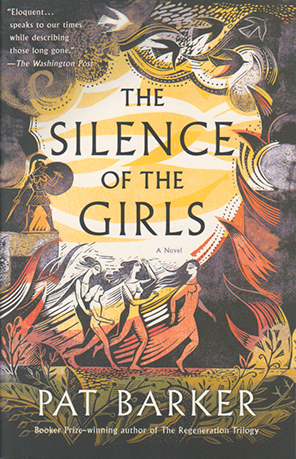

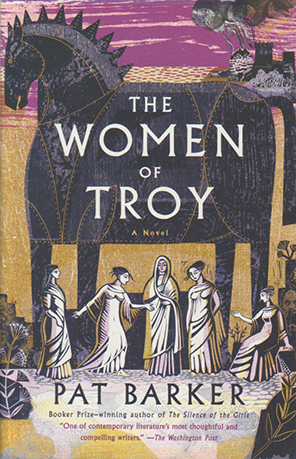
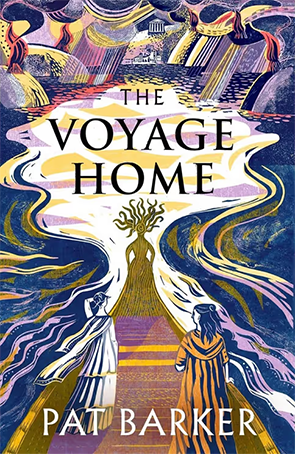

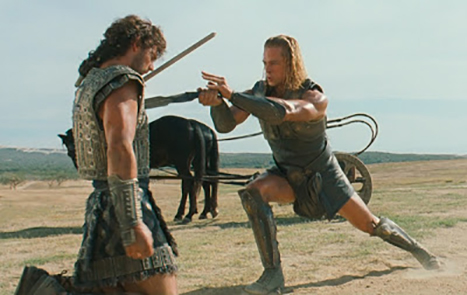
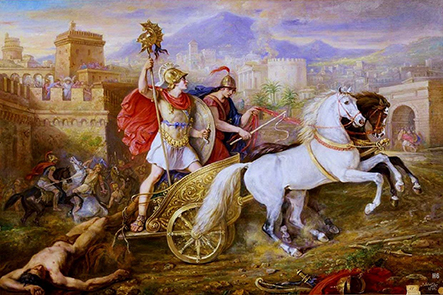
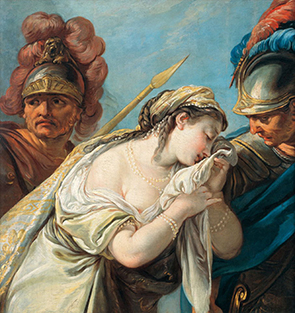

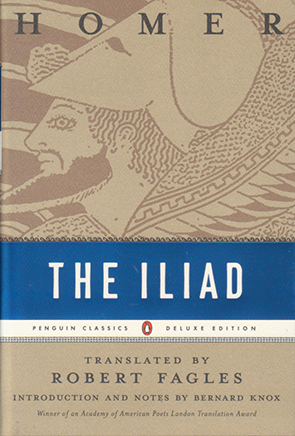


No one has commented yet. Be the first!